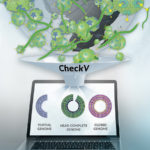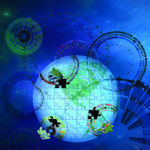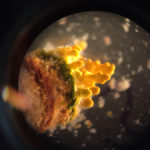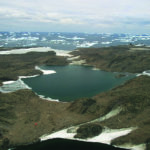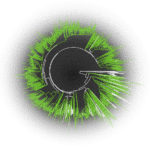Assembling viral genomes from metagenomes is challenging and often results in highly fragmented data, which limits the ability of researchers to accurately perform functional assessment, host prediction, and phylogenetic analysis. As reported in Nature Biotechnology, a team including JGI’s Stephen Nayfach, Frederik Schulz, Emiley Eloe-Fadrosh, Simon Roux and Nikos Kyrpides developed an automated tool called CheckV (pronounced “Check-Vee”) to help researchers assess and improve the quality of metagenome-assembled viral genomes. CheckV has already been applied to over 2.4 million viral genomes available in the latest release of IMG/VR, a database that is part of the Integrated Microbial Genomes & Microbiomes (IMG/M) suite. Learn more here on the JGI website.
JGI Leads Large-Scale Effort to Develop a Genomic Catalog of Earth’s Microbiomes
Microorganisms play key roles in regulating global nutrient cycles but only a small fraction has been identified and an even smaller number has been successfully cultured in a lab for study. In Nature Biotechnology, the known diversity of bacteria and archaea has now expanded by 44% through a publicly available collection of more than 52,000 microbial genomes from environmental samples. Of that number, 70% of the novel genome sequences were previously unknown, not yet cultured in the lab. The work results from a JGI-led collaboration involving more than 200 scientists around the world, KBase and NERSC. Read more about the genomic catalog of Earth’s microbiomes on the JGI website.
JGI Team Describes Host-Virus Dynamics In a Microbial Mat
Previous work on microbial mats had primarily relied on culturing virus and host pairs in the laboratory to study their interactions. In The ISME Journal, a team co-led by JGI postdoctoral researcher Mária Džunková used single-cell sequencing to sequence both a cell’s genome and detect accompanying viral sequences, which would suggest the virus had been infecting the cell. Read the full story on the JGI website.
JGI Helps Conduct Antarctic Lake Time-Series Study
Through a decade-long time-series study recently reported in Microbiome, a team led by Rick Cavicchioli of Australia’s University of New South Wales and including JGI researchers found that light-harvesting bacteria in Antarctica’s Ace Lake defy the norm when it comes to nutrient cycling in polar regions. While microbial populations in other Antarctic lakes and the nearby Southern Ocean shift from phototrophs to archaea when sunlight becomes scant, Ace Lake’s bacteria instead go through a boom and bust cycle aligned with light availability. Read more on the JGI website.
JGI-Led Team Expands the Global Diversity of Large and Giant Viruses
In Nature, a team led by JGI researchers reported uncovering a broad diversity of large and giant viruses that belong to the nucleocytoplasmic large DNA viruses (NCLDV) supergroup. The expansion of the diversity for large and giant viruses offered the researchers insights into how they might interact with their hosts, and how those interactions may in turn impact the host communities and their roles in carbon and other nutrient cycles. Read more on the JGI website.
Was this page useful?


